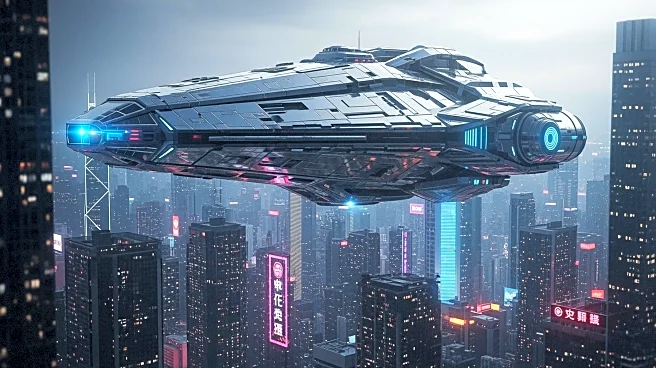What's Happening?
Obsidian Entertainment's latest release, 'The Outer Worlds 2', has been critiqued for its lackluster satire on capitalism and authoritarianism. The game, which is set in a sci-fi universe, attempts to
address themes of late-stage capitalism and fascist autocracies through its narrative and character design. However, critics argue that the portrayal of these ideologies is superficial and lacks depth. The game's main antagonists, Auntie's Choice and the Protectorate, are depicted as overly simplistic and cartoonish, failing to provide a meaningful critique of the real-world issues they are meant to represent. This has led to disappointment among players and critics who expected a more incisive commentary from the game.
Why It's Important?
The criticism of 'The Outer Worlds 2' highlights a broader issue within the gaming industry regarding the portrayal of complex social and political themes. As video games increasingly become a medium for storytelling and social commentary, the expectation for nuanced and thoughtful narratives grows. The failure of 'The Outer Worlds 2' to deliver a compelling satire may reflect a missed opportunity to engage players in meaningful discussions about capitalism and authoritarianism. This is particularly relevant as these themes resonate with current global political climates, including in the U.S., where debates over corporate power and political extremism are prevalent. The game's shortcomings may also reflect the challenges faced by developers working under large corporate entities like Microsoft, which could influence the creative direction and thematic boldness of their projects.
What's Next?
Moving forward, it will be important for game developers to balance creative freedom with corporate interests to produce content that resonates with audiences on a deeper level. As players and critics continue to demand more sophisticated narratives, developers may need to explore new ways to address complex themes without oversimplifying them. Additionally, the reception of 'The Outer Worlds 2' could prompt Obsidian and other studios to reassess their approach to satire and social commentary in future projects. The gaming community's response may also influence how publishers like Microsoft support and promote games that tackle controversial or challenging topics.
Beyond the Headlines
The reception of 'The Outer Worlds 2' raises questions about the role of satire in video games and its effectiveness in critiquing societal issues. While satire can be a powerful tool for highlighting injustices and prompting reflection, its impact is diminished when not executed with precision and insight. The game's portrayal of capitalism and authoritarianism as exaggerated caricatures may inadvertently trivialize the real-world implications of these ideologies. This underscores the importance of thoughtful and informed storytelling in media, particularly in a time when audiences are increasingly seeking content that challenges their perspectives and encourages critical thinking.









